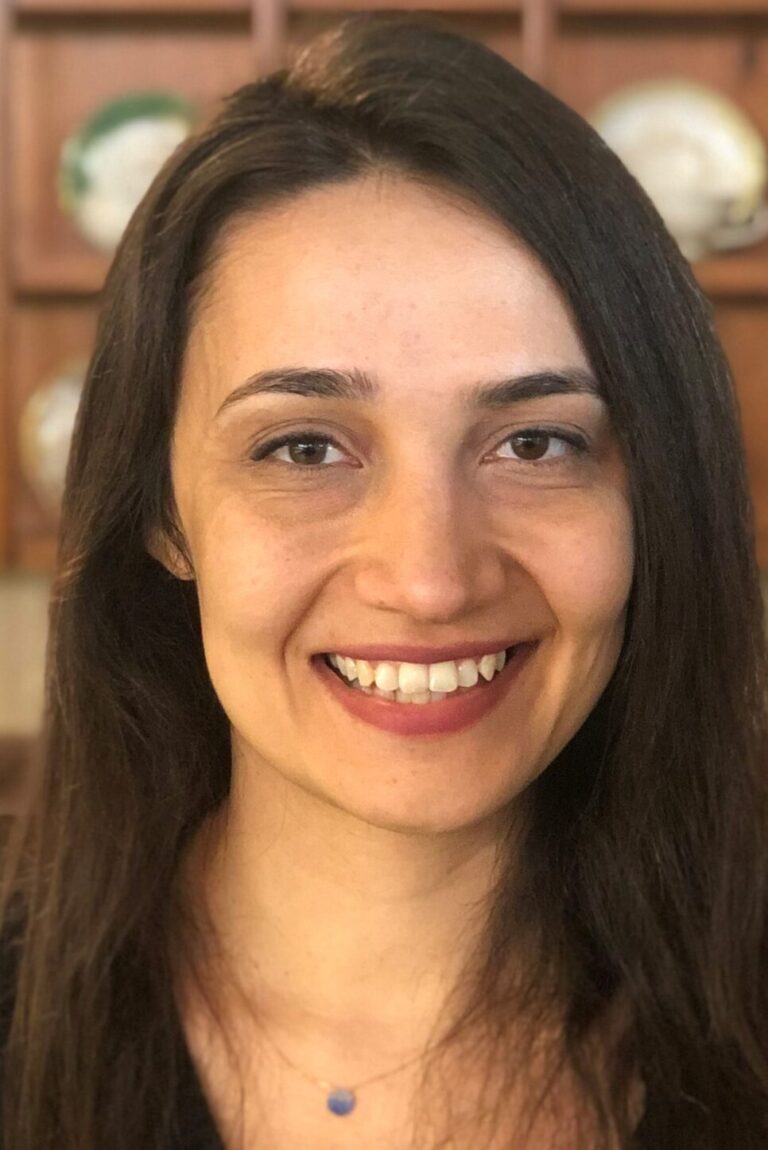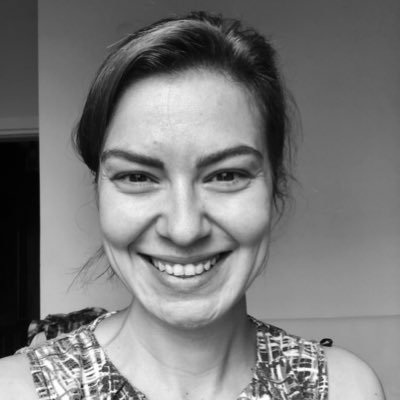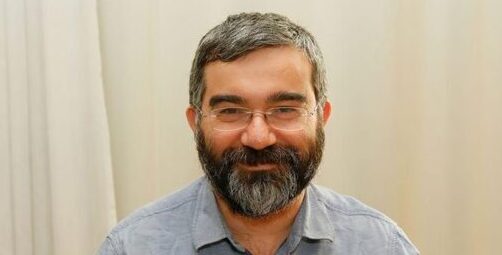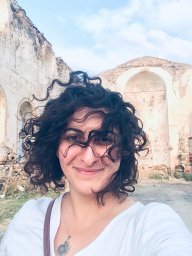“Compared to the past, media anthropology has become much more comprehensive in Turkey. Works produced in this eld follow both the global trends in media anthropology but they also come up with their own unique angles of study based on Turkey’s dynamics.” says media anthropologist Nazlı Özkan. Nazlı is currently working as an Assistant Professor in the Department of Media and Visual Arts at Koç University. She recieved her PhD in Anthropology at Northwestern University and is currently working on a project on the history of new media technologies in Turkey. We talked with Nazlı about her trajectory to anthropology and reections on conducting interdisciplinary research as an anthropologist.
Can you tell us about the road that merged you with anthropology?
I decided to become an anthropologist in my second year at college after taking the Political Anthropology class. I was majoring in Guidance and Psychological Counseling and took the class as an elective from the Sociology Department. I had no idea about what anthropology was and the syllabus, which included readings from theorists such as Gramsci and Foucault, seemed unfamiliar, if not intimidating. Contrary to my initial perception, however, anthropology turned out to be a way of thinking that is very easy to familiarize myself with (Here, I should also thank Ayfer Bartu Candan, the instructor of the class, for her well-structured and clear lectures). When applied to understand the daily interactions that we usually take for granted, all these unfamiliar theorists turned out to be useful guides that provide a fascinating vantage point to understand the relation of one’s very intimate interactions with power and inequality. I was fascinated by ethnography’s power as a methodology to bring into discussion minute details of everyday life and show how these details usually reproduce and are shaped by various socio-economic disparities. As a young university student concerned about social and political injustices, I got convinced that anthropology could be a way for me to pursue a more social-justice oriented life and decided to pursue a PhD in this field.
In your opinion, what is the biggest challenge/opportunity in conducting interdisciplinary research as an ethnographer who is trained in anthropology?
I will start with the challenge part as this is something I frequently think about. Ethnography or participant observation is a very popular methodology that is widely used across disciplines. The ethnographic methods class I took during my PhD studies had students from various departments and it could be one of the most interdisciplinary courses I attended in graduate school.This popularity is great for us as anthropologists since it usually facilitates enriching conversations with scholars from other disciplines. Such popularity, however, also leads to a common misconception that conducting participant observation is enough to produce an anthropological study. This kind of approach usually ignores that ethnography is a methodology that is at the heart of anthropology because contemporary anthropology, as a discipline, aims to challenge dominant or taken-for-granted frameworks of knowledge production, including the positivist framework. Ethnographic methodology requires the researcher to learn the language of their interlocutors and spend at least a year and sometimes two years in the field because it is through such extensive engagement that anthropologists develop this alternative framework of knowledge. Anthropologists tend to criticize doing participant observation with an analytical approach that is produced elsewhere (not in the field) and I think this is one of the most important challenges faced by anthropologists when doing interdisciplinary work.
I think media anthropology is a field that is very conducive to interdisciplinary study. In my own work, I frequently use the communication literature and am currently working at an interdisciplinary department that also includes communication scholars. I mostly benefit from the rich conceptual framework of the communication scholarship. Also, engaging with studies on media in other disciplines help me better locate my observations in relation to what is going on elsewhere in the world. In my work with journalists, I am also interested in how digital technologies transform journalistic production. When studies from other disciplines, conducted in other countries using different methodologies, such as statistics, yield to similar results to my observations, I became more curious about the parallel dynamics that might have caused the similarity. These resonances help me to see the global trends better. And they are also useful because the richness of anthropological data may sometimes make it hard to choose what to focus on so interdisciplinary engagement is one way of putting my data into perspective.
In a recent article published in PoLar [hyperlink], you present an alternative perspective on minority media and argue that “minority media producers can also be strategic in their alignments with their communities and may use this alignment as a façade when securing their ties with states” (p. 317). The article provides an in-depth understanding of an Alevi-run television in Turkey, which is possible only through good ethnography. And such deep ethnographic engagement often comes with its unique uneasiness and fragilities. Can you tell us about your positionality as an ethnographer and a media producer and the complex ways in which you enacted this positionality in the field?
The article you mention was based on the preliminary fieldwork I conducted back in the early 2000s for my larger dissertation project so it belongs to a period when I was getting more familiar with my field site but also with my own position as an anthropologist. The fieldwork that I conducted for two months during that period was very teaching for me to reflect upon my positionality in the field as an anthropologist. If you are doing ethnography in a setting such as news production, it is very easy to conflate different roles as data collectors, as you also mention in the question. During the research of the PoLAR piece, I became more aware of these roles—as an anthropologist and as a reporter. Depending on the institution they worked at, reporters or news producers usually have certain red lines when covering events. But as anthropologists, we usually focus on those very red lines and analyze them openly. In my case, my opinion about the incident and the network’s coverage strategy was in conflict so I tried to navigate this tension during my stay at the network. Of course, there is no specific formula to handle this situation so I can say that I tried ways to communicate my unique positionality in the field both as an ethnographer and as a reporter. One of those ways was asking some of the questions that I knew I would ask when analyzing the incident. I asked very straightforward and sometimes critical questions about the specific coverage strategy that I knew I would not be able to ask as a reporter employed by the network. Here, one walks a fine a line between being open and not making people uncomfortable. I must say that later, when I was doing my longer fieldwork, I learned to be less straightforward with my questions because even if I do not agree with the ways in which things are done, I am there to understand the reasons and obviously do not want to make people uncomfortable. Staying in the field longer is also helpful to navigate such tensions better because it gives much more insight into people’s actions and the events that they are part of. Also, people get to know you better, eventually you become friends and friendship provides a flexibility that not sharing the same viewpoint is not always a problem. This deeper relationship also made it easier for me to navigate my positionality but even then, fieldwork is full of these moments when you are not happy with the way you acted and the way things are carried out. You slowly learn how to sit through the discomfort and continue showing up despite that discomfort. I think I accepted that the fragility will be there as long as I continue researching and writing and that it is part of being an anthropologist. One can definitely get more talented at navigating the fragility while also knowing that it is not possible to fully overcome it.
What is your take when you look at the ethnographic/anthropological studies about media of Turkey? Do you observe any common tendencies or foci? Where do you think anthropological/ethnographic studies of media in Turkey are going?
I think we are in a time when media anthropology in Turkey is thriving and I am sincerely thankful that your initiative is helping this flourishment while also recording it. Compared to the past, media anthropology has become much more comprehensive in Turkey. Works produced in this field follow both the global trends in media anthropology but they also come up with their own unique angles of study based on Turkey’s dynamics. There are ethnographies on Turkey’s religious and Islamist media, which is an important subfield in media anthropology in general. There are also ethnographies on Turkey’s journalistic production—again another popular subfield of ethnographic studies on media. Yet, in Turkey, in addition to works that focus on mainstream journalism, there are also studies that explore minority news production such as Kurdish women’s practices of news production. Hence, in Turkey, there is an emerging trend to explore minorities’ engagement with journalism. I think this is an enriching contribution to the anthropological studies of news media in the world in general.
As for the future, in line with what’s happening in the world, I think there will be more ethnographies on digital media in Turkey. We already started seeing some examples of this shift. As the media environment got more intensely populated by digital media platforms, we also observe how people shift between different media tools—watching television while Tweeting about the program they are watching. Both in Turkey and also in the world, ethnographers are paying more attention to the simultaneous use of these multiple media tools. I think we are in the process of an anthropological shift, a shift from examining how people consume one medium or produce via one medium—such as the famous ethnographies on television production and viewership—to exploring the use of and production via multiple mediums and how people shift between different mediums and platforms. I think we will be seeing the fruits of this shift in anthropological studies on media in Turkey.
Tell us about your ongoing projects these days.
I recently received a Marie Sklodowska-Curie Fellowship for my project on the history of new media technologies in Turkey. In the next two years, I will be doing research on public and official reactions to radio in the 1920s, television in the 1950s, and mobile devices in the 2000s. With the rise of digital media, we are in the middle of another “new media” moment. One of the most exciting angles for me to better understand this moment is by going back in history to similar “new media” moments, such as the ones that emerged with radio and television and examining how people reacted in similar and/or different ways to these new media technologies of their period. Analyzing how people’s responses to new media changes is a well-established method of studying media in the communication literature—and here is another benefit for anthropology to engage in interdisciplinary work. I think it is a useful one to adopt because not only inventors or tech producers but also users play an important role in constructing the newness of technology. In my project, I will specifically look at how technological newness is constructed in relation to a country’s dominant mode of economic production such as industrial-developmentalist or neoliberal. For example, newspaper coverage of the reactions to television as a new medium reveals that, during the 1950s, when industrialization and development were the dominant modes of economic order, people were worried that television would harm labor productivity by requiring “both the ear’s and eye’s attention” (Milliyet). When we look at reactions to digital devices, the new media of the neoliberal 2000s, this time, we see that people embrace it as an item of conspicuous consumption. There are many studies highlighting that it is important for lower classes to own the most recent version of the smart phones as a sign of upward mobility. In a way then, reactions to new media change in line with the mantra of the economic systems of their era: concerns over labor productivity in the industrial 1950s shift todesires for conspicuous consumption in the consumption-oriented neoliberal times. By conducting archival work in the magazines and newspapers of the 1920s and 1950s that covered technological developments and by conducting ethnography with digital media users, my project will try to examine how these shifting political economic trends inform how users play a role in constructing the newness of technology.
Can you tell us a recent ethnographic work that you read and liked?
The last ethnographic work I enjoyed reading is Gabriella Coleman’s book titled Coding Freedom: The Ethics and Aesthetics of Hacking. I liked Coleman’s work because it focuses on hackers as a community in order to assess the limits of liberal ideas and liberal law in neoliberal times. I think by focusing on hackers, a role that emerged with the very rise of digital media, it provides a new vantage point to study transformations brought by digital technologies. It is not an ethnographic study but I also very much recommend Tarek El-Ariss’ book named Leaks, Hacks, and Scandals: Arab Culture in the Digital Age. This is another study on leaks and hacks and I like this book because it asks very important theoretical questions about media study that address issues unique to our contemporary moment. El-Ariss rephrases some of the questions we frequently ask about old media technologies—such as media circulation and public formation—in a way that almost updates them for a moment when leaks and hacks are a common mode of information sharing.



